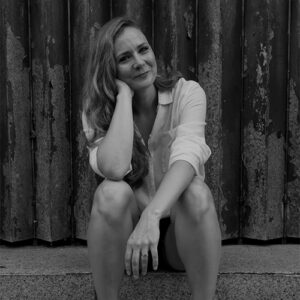
No. Two letters.
They hold enough weight to crush a dream, enough power to derail a passion and carry a force big enough to wipe out a career.
Life in the arts is full of rejection.
Over the past 6 years I have artfully avoided my own work. I had settled into the (pre-covid) relatively-risk-free life of salaried corporate entertainment. I had plenty of reasons and opportunities to make work during this time, and I had double the excuses to avoid it.
Over the last month I have accepted that it might be a long time before I can return to my life as I had come to know it, and I have pushed myself to look outside of my bubble of self-pity and start making things happen for myself.
I dusted off my hard drive of previous work. Looking at the work I made, it is hard to find a connection to it. I don’t want to use this work as a representation of who I am as a theatre maker now. I have six years of growth and development that are completely unaccounted for in these documents. I look at my pre-Master’s degree work as naïve and lacking depth, and yet I have no work after my Master’s that demonstrates the impact of my learning.
I tentatively started to rediscover the funding and support possibilities. Things are moving in the Arts in Ireland, money is being made available through a lot of sources and buying time for artists, like myself, to create new work. Amazing!
How do you represent experience but don’t have anything you want to show for it? How do you demonstrate your voice and originality when you didn’t create the shows you have worked on for 5 years? How do you demonstrate process when your day was akin to that of a data entry clerk in levels of creativity?
I received my first rejection this week. I slumped in the armchair and let the embarrassment wash through me. Someone had read a proposal I had made and said no. The only feedback was a vague explanation of oversubscription to the call.
The second rejection came a few days later. A generic email explained that it was not a reflection on the quality of the proposal.
My husband offered words of consolation and made me a cup of tea.
The next day I sat at my desk (or kitchen table as it is known at other times of the day) and opened the laptop. Another application was due.
Six years ago, each proposal I wrote was for an entirely new project, I had no clarity or focus in my work. Now, each proposal is based on the same project, or area of inquiry. Each proposal is actively forcing me to engage with the same questions; Why am I making this? Why does this story need to be told? How will I tell it?
Every iteration that appears on an application, clarifies an element of the performance and refines my thinking. The work is forming piece by piece, proposal by proposal.
I have worked with hundreds of high level athletes. Over the years I have watched (over the rim of a coffee mug) the discipline that their jobs require. I have seen the mundane, mind-numbing repetition of maintaining a body worthy of a romantic novel cover. I have seen some nail a new trick first time, and watched as jaws clench with anger when others fail after months of preparation. I have seen the tears from injuries, and watched the joy that a clear to train certificate brings. Most days I feel lucky that I don’t have the pressure of maintaining my body in this way, but increasingly I am becoming envious that I have never developed the practice of discipline.
I am gently teaching myself discipline. The applications are setting external deadlines. I have set myself deadlines for the blog and podcast. I treat this as my full-time job. I respect it as my job. I set boundaries. I do the jobs I don’t want to do. I write during the time I have available, not when I want to write. I’m seeing results. I’m watching my novel develop chapter by chapter. I’m seeing the research folder for a new show slowly prepare to turn into a script. As the rejection letters arrive, they are easier to ignore in favour of the work that is demanding attention.
I don’t pretend to know what resilience is (or even to have a huge amount myself), but I know that the discipline of working is helping. Creating routine is helping. Focusing on what I want to do, and why I want to do it is helping. Listening to others talk about their working practices is helping.
Funding is necessary in some shape or form. But funding applications are part of the job, they are not the work. The work must be given the priority.
Let the no’s hurt. But don’t forget to drink the tea…go back to work…write the next application.
Repeat. Repeat. Repeat.
Published in Collaboration with this creative nomad
Do You Have a Fixed or Growth Mindset?
Practicing Proactivity: Imposter Syndrome


this creative nomad is a blog and podcast by Aoife Carry. It is an exploration of creativity and the creative process. Aoife discusses her own creative practice in the blog posts, and the podcast is a series of interviews with entertainment professionals about their creative lives. Aoife is a circus director, show maker and writer. She has been working in entertainment since 2000, and has performed as an actress in classical theatre plays, written theatre shows, created early-years performances using circus, created unique spectacle performances and acts for private large-scale events and most recently was travelling the world as an Artistic Director for Cirque Du Soleil’s show Corteo. Aoife was based in Macau, S.A.R. for four years where she worked with Franco Dragone Entertainment on the show The House of Dancing Water, and then became part of the team that set up MGM’s first theatre in Asia. With Cirque Du Soleil she has toured Arena’s in the USA, Canada, and the majority of Europe. This came to a stop in early 2020 when the world ground to a halt. Aoife is currently based in Ireland and is creating new spectacle shows that draw on her diverse background and merge elements of theatrical storytelling, the intimacy of immersive performance and the scale of Spectacle.
Read Full Profile© 2021 TheatreArtLife. All rights reserved.

Thank you so much for reading, but you have now reached your free article limit for this month.
Our contributors are currently writing more articles for you to enjoy.
To keep reading, all you have to do is become a subscriber and then you can read unlimited articles anytime.
Your investment will help us continue to ignite connections across the globe in live entertainment and build this community for industry professionals.